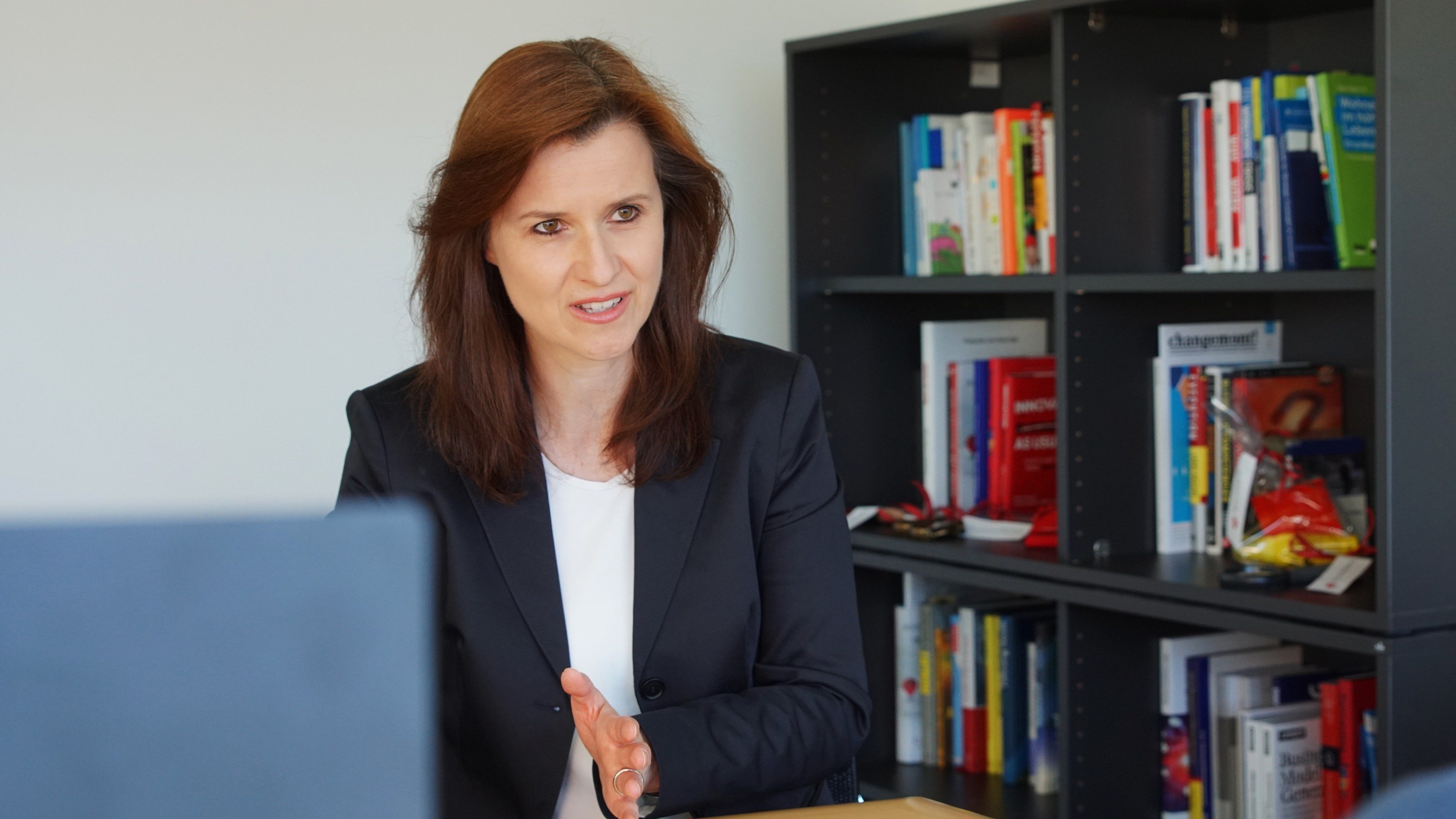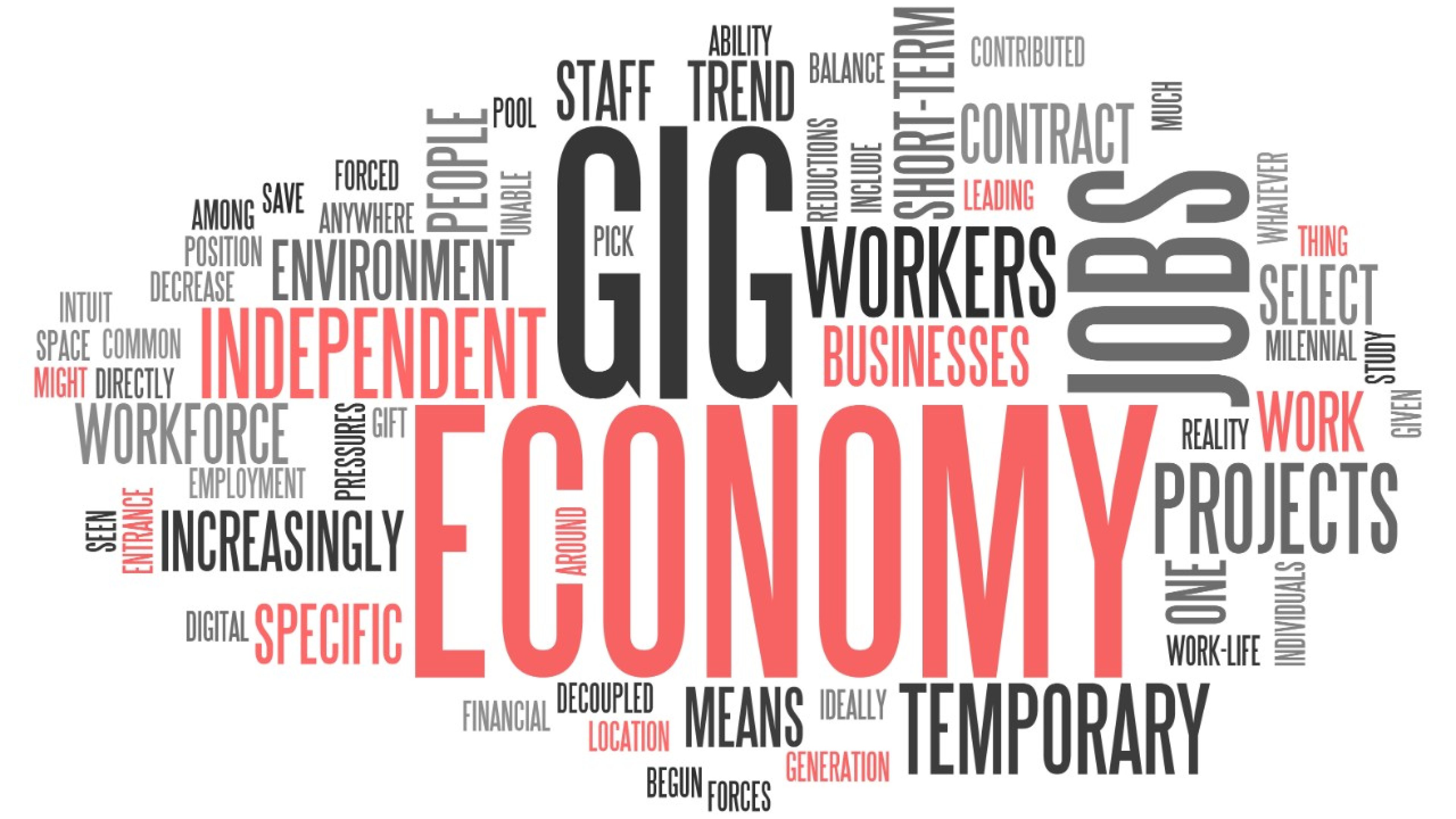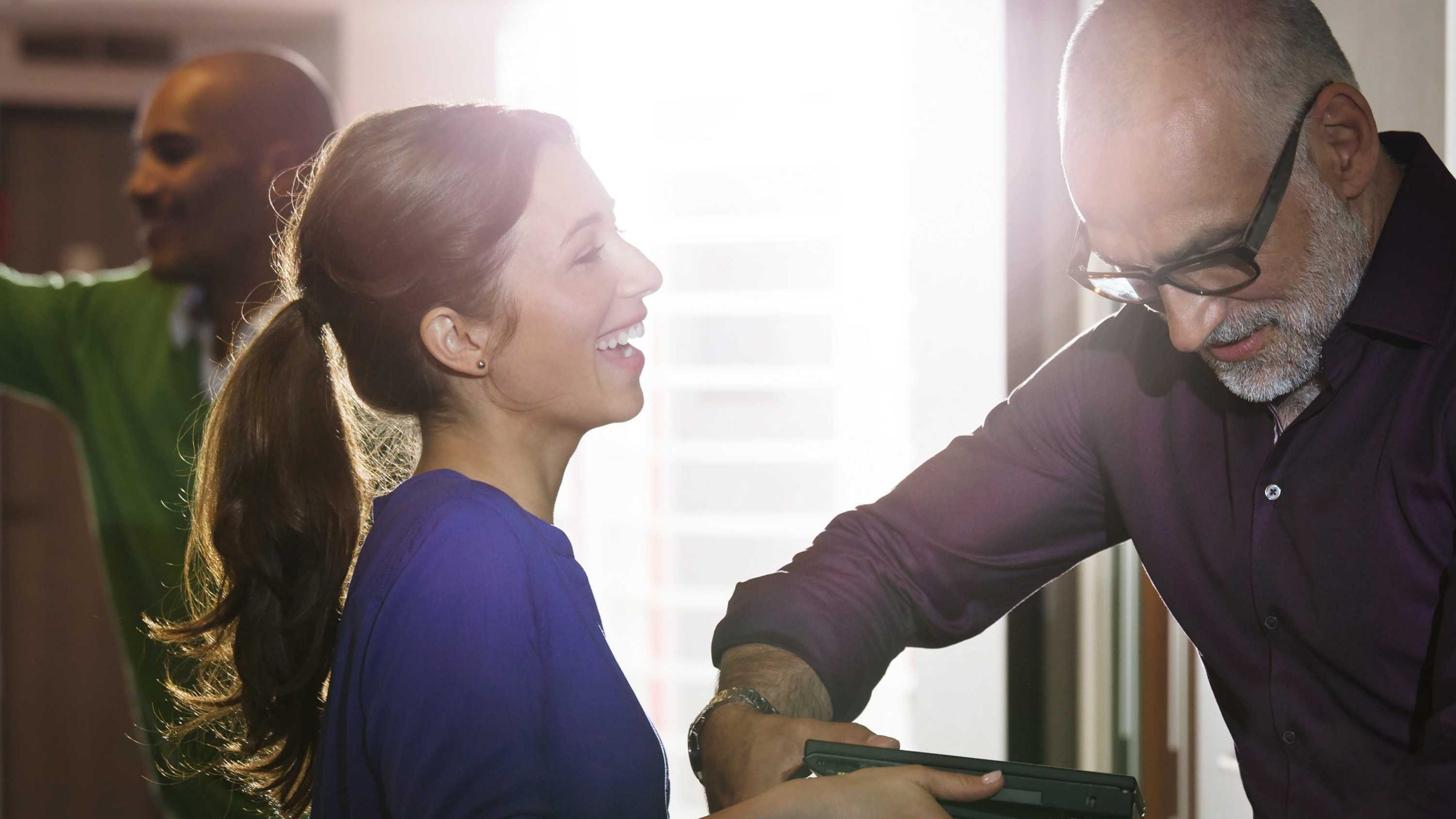Coworking – the collective open-plan office – is conquering the world. Social marketing entrepreneur Tara Hunt is one of the co-founders. A discussion about the rise of coworking and the massive corona-induced growth of digitalisation in working life.
In 2006, you opened the world's first full-time coworking space in San Francisco. How did that come about?
The idea came from our own needs. My co-founder, Chris Messina, and I were working as freelancers and, because working from home is isolating, we used to meet other people in a similar situation in a San Francisco café called Ritual Roasters. The owners weren't too keen on us occupying tables all day and the venue wasn't exactly ideal for working. So we started talking about sharing an office. One day we heard of a programmer, Brad Neuberg, renting out desks a few days a week and calling it “coworking.” We joined forces with him and a few others and founded “Teh Hat Factory,” the first full-time coworking space in Schlomo Rabinowitz's loft. A few months later, Chris and I left to start Citizen Space, the first full-time dedicated Coworking space.
The slogan of Citizen Space was: “A nicer place to work”. Did you want to imitate the cool office concepts of Google and Apple?
We always wanted more than fast WLAN, coffee bars and chic sofas. Freelancers, the solo self-employed and start-up entrepreneurs are often lonely and under stress, they want to exchange with people in a similar situation. We wanted to form a community. Coworking means exchanging knowledge and supporting each other through difficulties. On that basis, we formulated the five basic values of coworking: community, openness, collaboration, sustainability and accessibility.
How did the idea spread so rapidly throughout the world?
It was because we openly documented everything in our blogs and Google Groups. It took no time to attract interest from people all over the world. Hundreds and soon thousands of people joined the group and asked if they could open their own offices. We tapped into the Zeitgeist of the time. The digital economy was exploding and there were more and more young people setting themselves up as programmers, web designers or social media strategists.

There are now around 22 000 coworking spaces around the world, employing 2,2 million people. Letting flexible workplaces has become a lucrative business. Has the spirit of the founding years been preserved?
Even though the media tends to focus on hyped-up examples like WeWork, they are not part of the Coworking movement and most people involved in the thousands of spaces worldwide wouldn't even consider them competition. Those original values that Coworking was built on still exists in those thousands of local and very personally managed coworking spaces. The current corona crisis shows that.
In what sense?
We are seeing the rise of a kind of virtual coworking. The coworkers are in contact online, sharing their experiences, helping each other remotely, and organising virtual happy hours to combat the isolation. The community experience from before the crisis is now helping them during the crisis.
The coronavirus has radically changed our working world overnight. Which aspects will endure?
We are currently experiencing an involuntary experiment occurring in real time, which will lead to massive digitalisation of working life. Even the more conservative companies are realising: “Hey, remote working does work. We can use it and still be efficient!” As a result, regulated working structures, rigid hierarchies or a 9-to-5 onsite culture are increasingly being consigned to the past. Instead, in the future there will be more flexible working models with more agile and decentralised teams. The gig economy will also receive an additional boost with more jobs going to the digital solo self-employed.

So is home office the big winner from the crisis?
No, the real winner is coworking. Current experience also demonstrates that: in the longer term, home office is not a sustainable solution. We are social beings. Many people cannot be productive at home. They need to separate living and working places, they need exchanges with colleagues and the energy of a shared office. Coworking makes us happier, more motivated and more successful – as various studies show.
Does digitalisation also make our working life more self-determined?
In theory, yes as it allows us to work more flexibly in terms of time and place. However, in practical terms it has led to 24/7 accessibility and impacted our work-life balance. Many people no longer work to live; they live to work. I've experienced it myself and know where it leads. Whenever possible, I switch off my phone from Friday evening to Sunday. It's a wonderful break, I can even feel my heartbeat coming down.

Will the coronavirus change anything in that regard?
If we learn something from this crisis, I would like it to be a shift towards a more considerate way of life. Let's get a piece of our self-determination back.
Speaking of self-determination: you are now a successful social marketing entrepreneur in Toronto. Do you still work in a coworking space with your company?
We actually started as a start-up in a local coworking space. However, following strong growth, we moved into our own office in 2017. Occasionally other companies or freelancers also use our workplaces. The coworking spirit lives on.
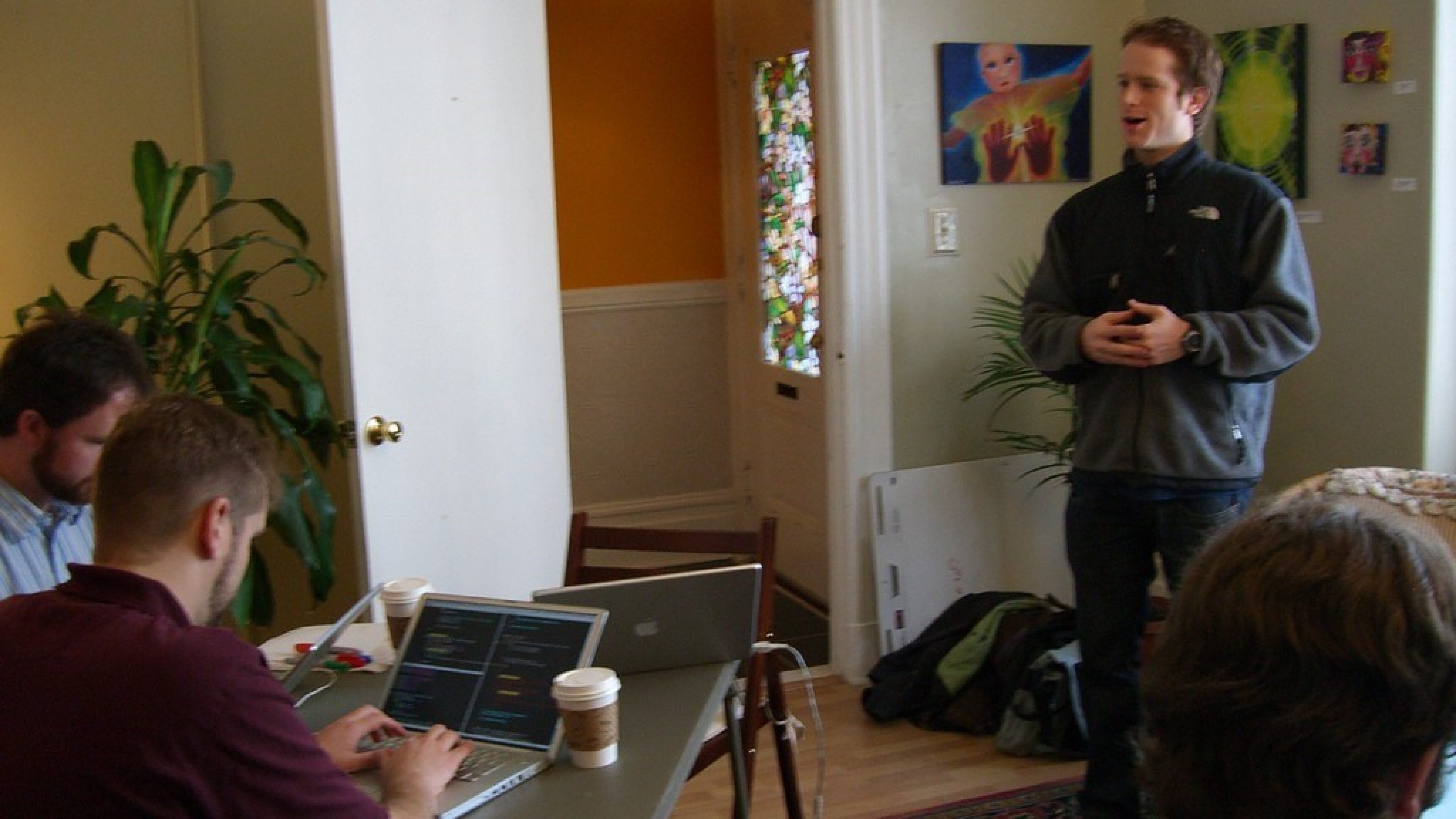
“Spiral Muse” in San Francisco: the programmer Brad Neuberg renting out individual workplaces by the day in 2005 under the slogan “Coworking.”
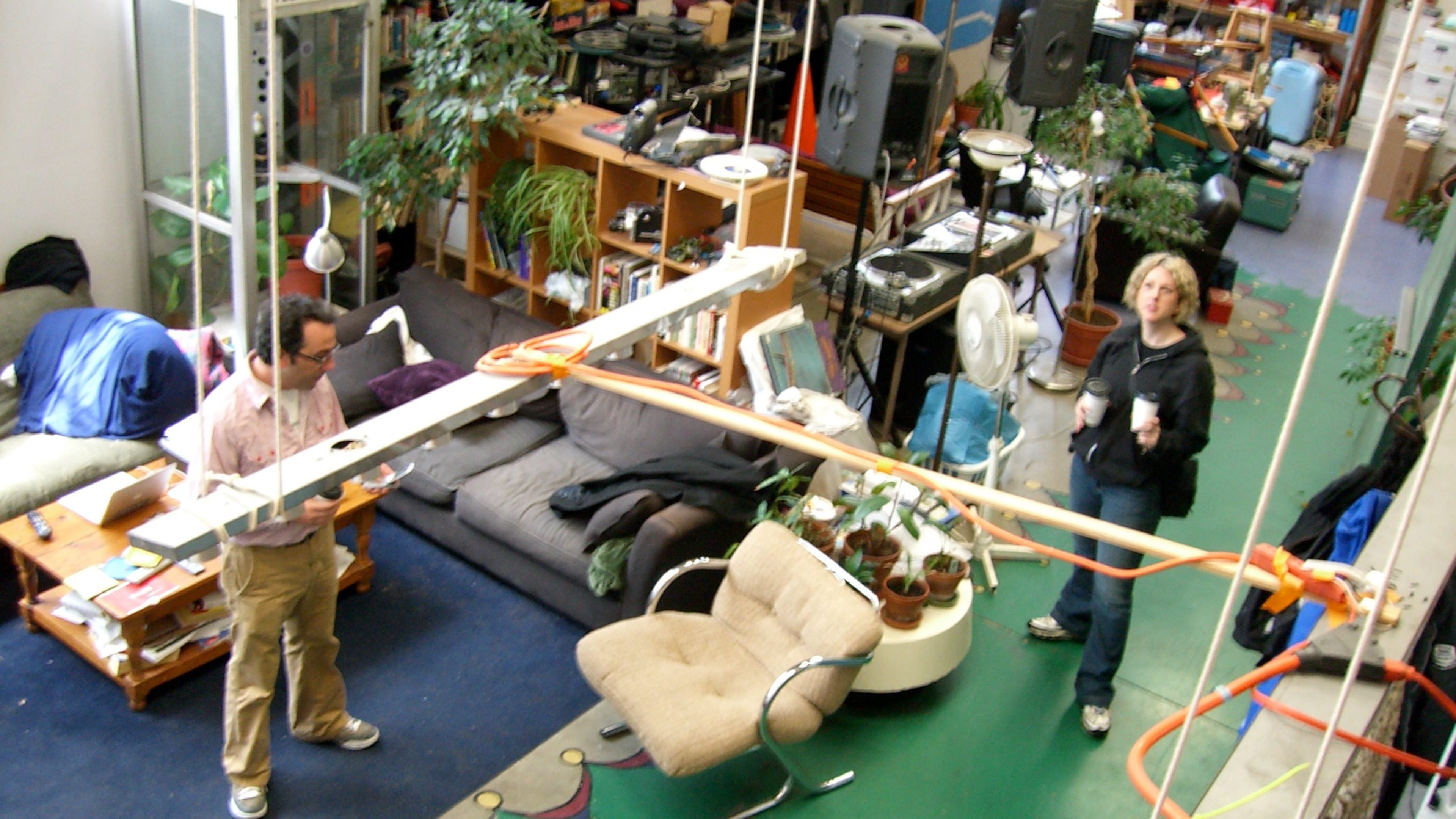
“Teh Hat Factory” in San Francisco: the first full-time coworking space opens in spring 2006.
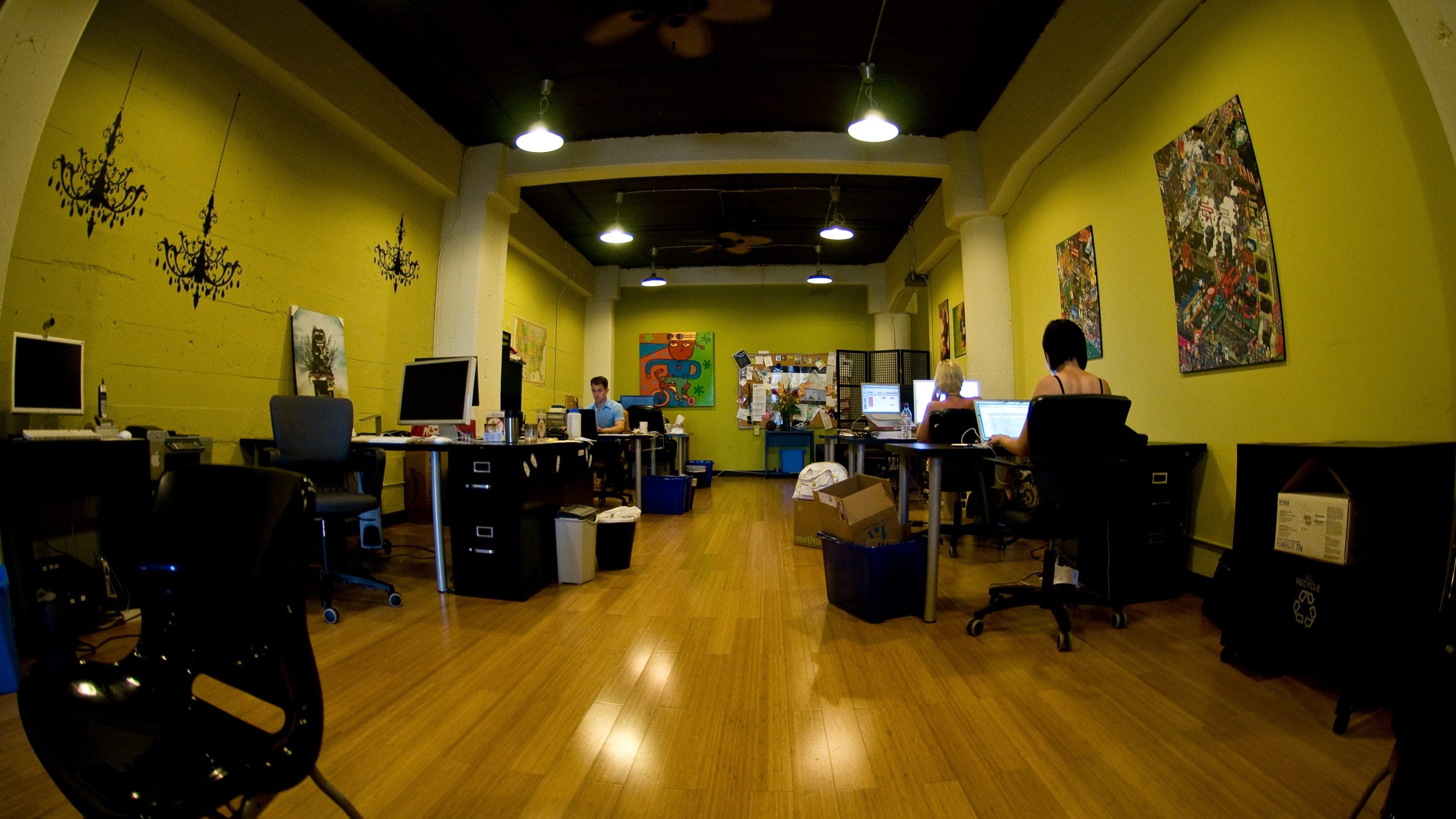
“Citizen Space” in San Francisco: opening in autumn 2006 with the slogan “A nicer Place to work”.

The coworking pioneer
Tara Hunt (46) was part of the founding team that opened the first full-time coworking space “Teh Hat Factory” in San Francisco in 2006. The Canadian has established several start-ups in the field of online and social marketing and is one of the most important influencers in digital culture. In 2009, she published the book “The Whuffie Factor” about the power of social networking. In 2013, she was jointly responsible for the social media strategy of the current Canadian Prime Minister Justin Trudeau. Today she is CEO of the social marketing agency Truly Inc. in Toronto, where she lives with her partner.

